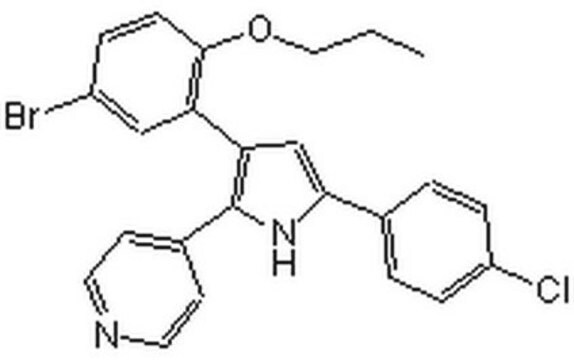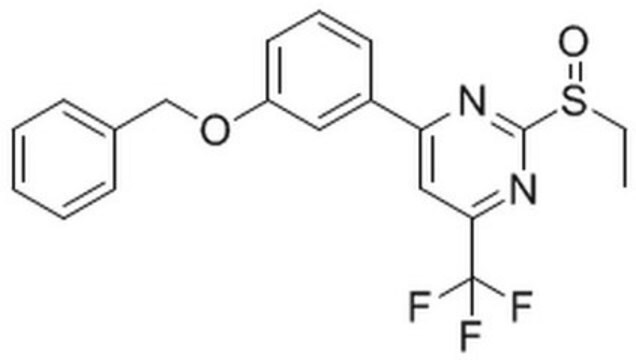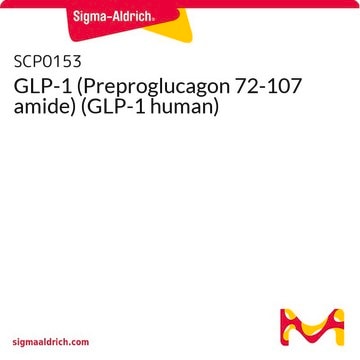About This Item
Recommended Products
Quality Level
Assay
≥95% (HPLC)
form
powder
mol wt
3369.76 g/mol
storage condition
(Keep container tightly closed in a dry and well-ventilated place)
technique(s)
protein expression: suitable
solubility
water: 1.00-1.04 mg/mL, clear, colorless
storage temp.
−20°C
InChI
1S/C149H234N40O47S/c1-14-78(10)120(185-139(227)98(62-81-29-16-15-17-30-81)177-136(224)97(61-76(6)7)175-129(217)88(35-24-53-158-149(156)157)172-144(232)119(77(8)9)184-122(210)79(11)164-126(214)90(41-46-114(199)200)168-131(219)91(42-47-115(201)202)169-132(220)92(43-48-116(203)204)170-134(222)94(50-58-237-13)171-130(218)89(40-45-109(153)194)167-127(215)86(33-20-22-51-150)166-140(228)103(72-192)182-137(225)95(59-74(2)3)174-123(211)84(152)64-118(207)208)145(233)173-93(44-49-117(205)206)133(221)178-99(63-82-66-159-85-32-19-18-31-83(82)85)138(226)176-96(60-75(4)5)135(223)165-87(34-21-23-52-151)128(216)179-100(65-110(154)195)124(212)161-67-111(196)160-69-113(198)186-54-25-36-105(186)142(230)183-104(73-193)141(229)181-102(71-191)125(213)162-68-112(197)163-80(12)146(234)188-56-27-38-107(188)148(236)189-57-28-39-108(189)147(235)187-55-26-37-106(187)143(231)180-101(70-190)121(155)209/h15-19,29-32,66,74-80,84,86-108,119-120,159,190-193H,14,20-28,33-65,67-73,150-152H2,1-13H3,(H2,153,194)(H2,154,195)(H2,155,209)(H,160,196)(H,161,212)(H,162,213)(H,163,197)(H,164,214)(H,165,223)(H,166,228)(H,167,215)(H,168,219)(H,169,220)(H,170,222)(H,171,218)(H,172,232)(H,173,233)(H,174,211)(H,175,217)(H,176,226)(H,177,224)(H,178,221)(H,179,216)(H,180,231)(H,181,229)(H,182,225)(H,183,230)(H,184,210)(H,185,227)(H,199,200)(H,201,202)(H,203,204)(H,205,206)(H,207,208)(H4,156,157,158)/t78-,79-,80-,84-,86-,87-,88-,89-,90-,91-,92-,93-,94-,95-,96-,97-,98-,99-,100-,101-,102-,103-,104-,105-,106-,107-,108-,119-,120-/m0/s1
InChI key
WSEVKKHALHSUMB-MVNVRWBSSA-N
Gene Information
human ... GCG(2641) , GLP1R(2740)
Amino Acid Sequence
Application
- to study to determine whether Ex-4 a GLP-1R agonist acts through GLP-1R, in mouse skeletal muscle cell line
- to study its effects on the adaptation of islets in glucose-dependent insulinotropic polypeptide knockout mice
- to study its in vivo effects on GLP-1 signaling on insulin response in mice
Biochem/physiol Actions
Other Notes
antibody
Storage Class Code
11 - Combustible Solids
WGK
WGK 3
Flash Point(F)
Not applicable
Flash Point(C)
Not applicable
Personal Protective Equipment
Certificates of Analysis (COA)
Search for Certificates of Analysis (COA) by entering the products Lot/Batch Number. Lot and Batch Numbers can be found on a product’s label following the words ‘Lot’ or ‘Batch’.
Already Own This Product?
Find documentation for the products that you have recently purchased in the Document Library.
Customers Also Viewed
Our team of scientists has experience in all areas of research including Life Science, Material Science, Chemical Synthesis, Chromatography, Analytical and many others.
Contact Technical Service








